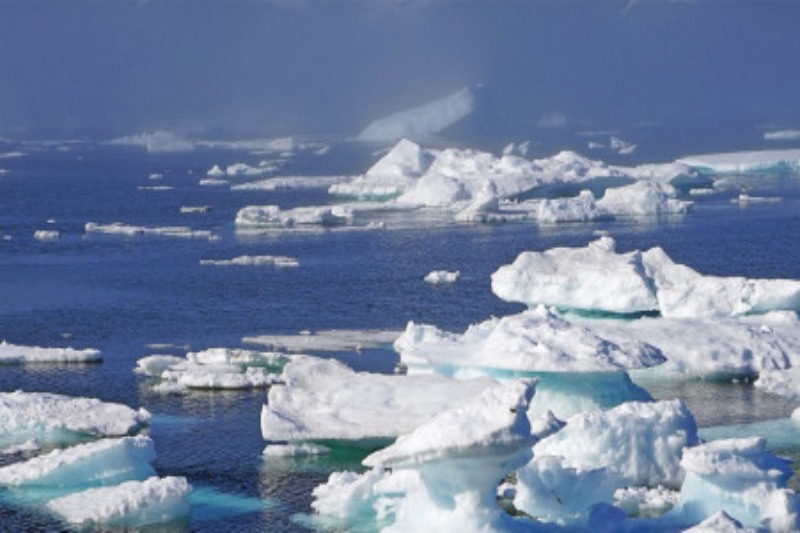Scientists are “Extremely Worried” as Antarctic Sea Ice Disappears

For three years running, Antarctic sea ice levels have reached record lows, signaling dire ramifications for life as we know it.
However, scientist Miguel Angel de Pablo bemoans the fact that humanity appears to be unaware of the warnings as he looks out across the southernmost continent.
On Livingston Island in the South Shetland Antarctic archipelago, the Spanish planetary geologist told AFP, “We (scientists) are very worried… because we don’t see how we can solve it ourselves.”
“The more alerts we send out… to make society aware of what is happening, it seems we are not listened to, that we are (perceived as) alarmist” despite the proof, he stated.
For the third consecutive February—the height of the southern summer melt season—the minimum Antarctic sea ice extent was recorded at less than two million square kilometers (772,000 square miles), according to a report released on Wednesday by the US National Snow & Ice Data Center (NSIDC).
For each of the three years, the minimum sea ice cover was the lowest since records have been kept 46 years ago.
Since sea ice forms by freezing salt water that is already in the ocean, melting it has little direct effect on ocean levels.
However, because white ice reflects more solar radiation than darker ocean water, its melting highlights global warming and exposes the onshore freshwater ice sheet, which if it melts, might result in a disastrous rise in sea level.
“Even though we are far from any inhabited part of the planet, in reality what happens in Antarctica affects everything” in the rest of the world, said De Pablo.
According to a study conducted last year, during the previous 25 years, the volume of almost half of Antarctica’s ice shelves—floating sheets that are tied to the landmass—has decreased as well, dumping trillions of tons of meltwater into the ocean.
This affects not just sea levels but also the temperature and salinity of the water.
According to some experts, there is less conclusive evidence of the impact of climate change on sea ice melt in Antarctica than in the Arctic north pole, despite the continent being recognized for large yearly changes in its summer thaws and winter freezes.
De Pablo, who has spent the last 16 years researching Antarctic ice, said that it might already be too late to halt the current trend.
“The problem is that these degradations are not easily undone,” he stated.
“Even if today we (changed) the rhythms of life that we have in Western societies, tomorrow the glaciers would not cease to degrade nor the frozen soils to be lost,” with the associated costs.
According to scientific estimates, the average global temperature has already risen by 1.2 degrees Celsius since pre-industrial times. The goal of the 2015 Paris Agreement was to reduce emissions that warm the globe in order to keep warming to 1.5 C (2.7 Fahrenheit).
“We have to ask ourselves whether the manner in which we live our daily lives is truly worth it because in the end we will lose our planet,” said De Pablo.
“There is no second planet” Earth, he added.